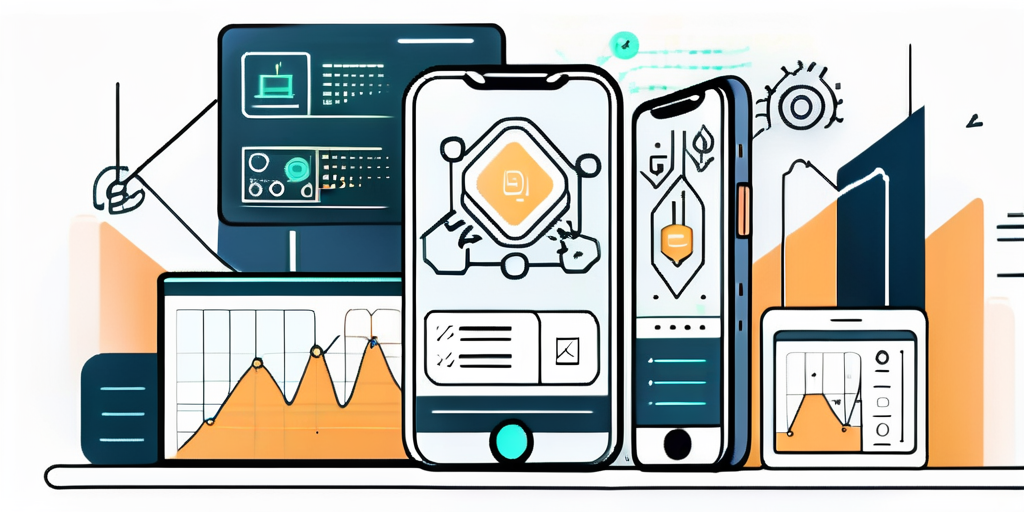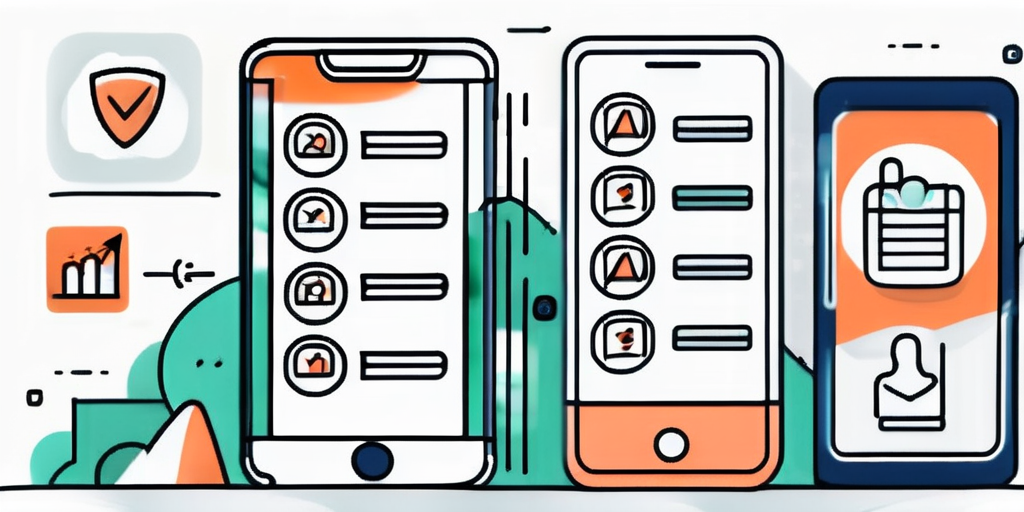
In today’s competitive job market, getting through the initial stage of the hiring process can be a challenge, especially for coders. Phone screens have become a popular method for companies to narrow down their pool of applicants and assess their coding skills before inviting candidates for in-person interviews. But what exactly is the role of phone screens in the hiring process, and why are they so crucial for coders? In this article, we will explore the importance of phone screens and provide you with valuable advice from expert coders to help you prepare and excel in your coding phone screens.
Understanding the Importance of Phone Screens in Coding
Phone screens serve as a preliminary screening tool for hiring managers to evaluate a candidate’s technical skills, communication abilities, and cultural fit. With just a phone call, recruiters can quickly assess whether a candidate possesses the fundamental coding knowledge required for the job. Moreover, phone screens allow employers to gauge a candidate’s problem-solving skills and how well they can think on their feet, both of which are essential attributes for any successful coder.
During a phone screen, recruiters often ask candidates to solve coding problems or explain their approach to solving a particular programming challenge. This not only helps the employer assess the candidate’s technical abilities but also provides valuable insights into their problem-solving strategies. For example, a candidate who can break down a complex problem into smaller, manageable steps demonstrates their ability to approach coding challenges systematically.
In addition to technical skills, phone screens also evaluate a candidate’s communication abilities. Effective communication is crucial in a coding job, as developers often need to collaborate with team members, explain their code to others, and provide updates on their progress. Through a phone screen, recruiters can assess a candidate’s clarity of expression, listening skills, and ability to articulate their thoughts concisely.
By identifying suitable candidates through phone screens, employers can save time and resources by only inviting the most qualified individuals for in-person interviews. For candidates, this means that excelling in a phone screen is crucial to moving forward in the hiring process and securing that dream coding job.
Preparing for Your Coding Phone Screen
Now that you understand the significance of phone screens, it’s time to prepare yourself for a successful coding phone screen. Here are some essential topics to review before the call:

- Data Structures and Algorithms: Brush up on the basics of data structures such as arrays, linked lists, stacks, and queues. Familiarize yourself with common algorithms, like sorting and searching.
- Programming Languages: Be sure to revise the programming languages relevant to the job you’re applying for. Understand the syntax, data types, control structures, and common libraries associated with those languages.
- Problem-Solving Techniques: Practice solving coding problems and puzzles to sharpen your problem-solving skills. Consider using online coding platforms or participating in coding challenges to improve your performance.
In addition to technical preparation, it’s essential to pay attention to effective communication over the phone. Here are some tips to help you communicate confidently during your coding phone screen:
- Speak Clearly: Ensure that your voice is audible and articulate your thoughts clearly. Take your time to answer questions and avoid rushing your responses.
- Active Listening: Listen attentively to the interviewer’s questions and make sure to understand them fully before answering. Ask for clarifications if needed.
- Be Concise: Share your thoughts concisely and avoid going off on tangents. Stick to the main points and provide relevant examples to support your answers.
Now, let’s dive deeper into each of these topics to help you prepare more effectively for your coding phone screen.
When it comes to data structures and algorithms, it’s crucial to have a solid understanding of their fundamental concepts. Take the time to review the different types of data structures, such as arrays, linked lists, stacks, and queues. Familiarize yourself with their strengths and weaknesses, as well as their common use cases. Additionally, make sure you’re comfortable with the basic operations associated with these data structures, such as insertion, deletion, and traversal.
As for algorithms, focus on the most commonly used ones, such as sorting and searching algorithms. Understand their time and space complexities, as well as their pros and cons. It’s also beneficial to practice implementing these algorithms from scratch, as it will help solidify your understanding and improve your problem-solving skills.
When revising programming languages, tailor your preparation to the specific languages relevant to the job you’re applying for. Ensure that you have a good grasp of the syntax, data types, control structures, and common libraries associated with those languages. Take the time to review any language-specific concepts or features that are frequently used in the industry. This will demonstrate your proficiency and make you stand out during the coding phone screen.
Problem-solving techniques are a crucial aspect of coding interviews. To sharpen your problem-solving skills, practice solving coding problems and puzzles regularly. There are plenty of online coding platforms and coding challenges available that can help you improve your performance. These platforms often provide a variety of problem-solving scenarios, allowing you to tackle different types of coding challenges and expand your problem-solving toolkit.
Now, let’s shift our focus to effective communication during your coding phone screen. Speaking clearly is essential to ensure that your thoughts are conveyed accurately. Take the time to enunciate your words and maintain a steady pace. Avoid rushing through your answers, as it may lead to miscommunication or confusion. Remember, the interviewer is relying solely on your voice to assess your technical skills, so make sure your voice is audible and your thoughts are articulated clearly.
Active listening is another crucial aspect of effective communication. Pay close attention to the interviewer’s questions and make sure you fully understand them before providing your answers. If something is unclear, don’t hesitate to ask for clarifications. It’s better to seek clarification and provide a well-informed response than to make assumptions and risk misunderstanding the question.
Finally, be concise in your responses. While it’s important to provide thorough explanations, avoid going off on tangents or providing unnecessary details. Stick to the main points and provide relevant examples to support your answers. This will demonstrate your ability to communicate effectively and concisely, which is highly valued in the coding industry.
By following these tips and diving deeper into the essential topics, you’ll be well-prepared for your coding phone screen. Remember to practice regularly and stay confident in your abilities. Good luck!
Common Phone Screen Questions for Coders
During a coding phone screen, you can expect a combination of technical and behavioral questions. To help you prepare, here are some examples of the types of questions you might encounter:

Technical Questions You Might Encounter
The technical questions in a coding phone screen are designed to test your coding knowledge and problem-solving abilities. You might encounter questions related to algorithms, data structures, programming languages, or code optimization. Here are a few examples:
- Explain the difference between an array and a linked list.
- Implement a function to check if a given string is a palindrome.
- Describe the time complexity of various sorting algorithms.
When it comes to technical questions, interviewers are not only interested in the correct answer but also in your thought process and how you approach problem-solving. They want to see if you can break down complex problems into smaller, more manageable parts and come up with efficient solutions. So, be prepared to explain your reasoning and discuss different approaches to solving the problem.
Behavioral Questions to Prepare For
Aside from technical questions, interviewers often assess candidates’ behavioral traits and cultural fit through phone screens. Some common behavioral questions you might encounter include:
- Tell me about a time when you faced a challenging coding problem and how you resolved it.
- How do you prioritize tasks when working on multiple projects simultaneously?
- Describe a situation where you had to collaborate with a difficult team member and how you handled it.
Behavioral questions are designed to evaluate your soft skills, such as communication, problem-solving, teamwork, and adaptability. Interviewers want to understand how you handle real-life situations and how you interact with others in a professional setting. When answering behavioral questions, it’s important to provide specific examples from your past experiences and explain the actions you took to overcome challenges or achieve positive outcomes.
Remember, phone screens are usually the first step in the interview process, so it’s essential to make a good impression. Prepare for both technical and behavioral questions, practice your responses, and showcase your skills and experiences confidently. Good luck!
Strategies for Successful Phone Screens
With the right strategies, you can excel in your coding phone screens and make a lasting impression on the interviewer. Here are a couple of tips to help you succeed:

How to Showcase Your Coding Skills Over the Phone
During the phone screen, the interviewer will not be able to see your code. It’s essential to communicate effectively to demonstrate your coding skills. To make your answers more impactful, consider the following:
- Think Aloud: Explain your thought process and the steps you would take to approach a problem. This will help the interviewer understand your problem-solving skills even without seeing the code.
- Provide Examples: Whenever possible, provide examples or share experiences from your past coding projects to back up your answers. Relating your answers to real-life scenarios will make them more memorable.
When explaining your thought process, it’s crucial to be clear and concise. Break down the problem into smaller steps and explain each step in detail. This will not only showcase your coding skills but also demonstrate your ability to communicate complex ideas effectively.
Furthermore, when providing examples, choose ones that highlight your expertise and demonstrate your ability to tackle challenging coding problems. Sharing specific details about the projects you have worked on will give the interviewer a better understanding of your capabilities.
Building Rapport with the Interviewer
While technical skills are essential, building rapport with the interviewer can also greatly influence the outcome of your phone screen. Use these tips to connect with the interviewer:
- Ask Questions: Show genuine interest in the company and the role by asking thoughtful questions. This demonstrates your initiative and engagement.
- Engage in Conversation: Treat the phone screen as a conversation rather than a one-sided interview. Engage with the interviewer by asking follow-up questions or sharing your thoughts.
- Express Enthusiasm: Let your passion for coding shine through by expressing your enthusiasm for the position and the company. Showcase your motivation to continue learning and growing as a coder.
When asking questions, focus on topics that genuinely interest you and align with the company’s values and goals. This will not only demonstrate your curiosity but also show that you have done your research.
During the conversation, actively listen to the interviewer and respond thoughtfully. Engage in a meaningful dialogue by asking follow-up questions or sharing your own insights. This will create a connection and make the phone screen feel more like a collaborative discussion rather than a formal interview.
Lastly, express your enthusiasm for coding and the opportunity to work with the company. Highlight your passion for continuous learning and emphasize your commitment to personal and professional growth. This will leave a lasting impression on the interviewer and showcase your dedication to the field.
Post-Phone Screen Steps

After successfully completing your coding phone screen, there are a few post-phone screen steps you should take:
Following Up After the Phone Screen
Take the opportunity to follow up with a personalized thank-you email to the interviewer. Express your gratitude for the opportunity to interview and re-emphasize your interest in the position. Keep the email concise and professional.
Additionally, in your thank-you email, you can mention specific aspects of the phone screen that stood out to you. For example, if the interviewer asked a thought-provoking question that allowed you to showcase your problem-solving skills, highlight that moment and express how it further solidified your interest in the role. This personalized touch can leave a lasting impression on the interviewer and demonstrate your genuine enthusiasm for the position.
Evaluating Your Phone Screen Performance
Reflect on your phone screen performance and identify areas where you excelled and areas you can improve. Use this evaluation as a learning opportunity to enhance your skills and better prepare for future interviews.
One effective way to evaluate your phone screen performance is to seek feedback from others. Reach out to a trusted mentor, colleague, or friend who has experience in the coding industry. Share your experience during the phone screen and ask for their insights and suggestions. Their perspective can provide valuable insights and help you identify blind spots or areas of improvement that you may have overlooked.
Furthermore, consider recording your phone screen interviews (with the interviewer’s permission) to review later. This allows you to analyze your performance objectively and identify any patterns or habits that may hinder your success. Pay attention to your communication style, clarity of explanations, and overall confidence. By pinpointing areas for improvement, you can tailor your preparation for future interviews and increase your chances of success.
In conclusion, phone screens play a critical role in the hiring process for coders. By understanding their importance and adequately preparing for them, you can increase your chances of success. Remember to review essential coding topics, practice effective communication, and showcase your skills and enthusiasm. With these strategies in mind, you’ll be well on your way to acing your coding phone screens and advancing in your coding career.